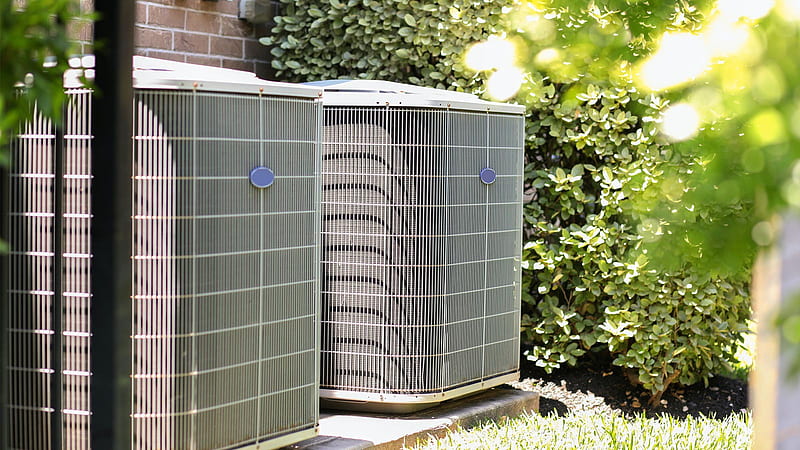Climate Control Chronicles: Mastering Your Home's Heating and Air Conditioning
Climate Control Chronicles: Mastering Your Home's Heating and Air Conditioning
Blog Article

When it comes to creating a comfortable living environment, mastering your home's heating and air conditioning systems is essential. These systems not only maintain perfect temperatures throughout the changing seasons but also significantly impact your energy bills and overall indoor air quality. Understanding how to regulate and optimize these systems can lead to greater comfort and efficiency, ensuring that you enjoy a cozy retreat during cold winters and a refreshing escape from the summer heat.
In today's world, where climate change is at the forefront of our minds, it is vital to implement effective heating and cooling solutions. Many homeowners are seeking ways to reduce their carbon footprint while still enjoying a comfortable atmosphere. Whether you are considering upgrades to your existing systems, exploring energy-efficient options, or simply wanting to learn more about best practices, this guide will provide you with the necessary tools to take control of your home's climate. Together, we will navigate the intricacies of heating and air conditioning, empowering you to make informed decisions for your home and family.
Understanding Your HVAC System
Heating and air conditioning systems, commonly referred to as HVAC systems, play a crucial role in maintaining a comfortable indoor environment. These systems work together to regulate temperature and humidity levels, ensuring your home remains cozy during cold winters and refreshing during hot summers. Understanding the components of your HVAC system can empower you to make informed decisions about maintenance and upgrades, ultimately leading to improved efficiency and savings on energy bills.
At the heart of any HVAC system is the furnace or boiler for heating, and the air conditioner or heat pump for cooling. Furnaces generate heat using various fuel sources like gas, oil, or electricity, and distribute warm air through ductwork. On the other hand, air conditioners cool indoor air by removing heat and humidity, circulating the refreshed air back into your living space. These two systems, along with proper ductwork and thermostats, work cohesively to achieve optimal climate control throughout your home.
Regular maintenance of your HVAC system is essential to ensure its longevity and efficiency. Tasks such as changing filters, cleaning ducts, and scheduling professional inspections can prevent breakdowns and enhance performance. Familiarizing yourself with how your system operates enables you to troubleshoot common issues and recognize when it might be time for repairs or replacement, helping you keep your home comfortable year-round.
ApexHeatAndAC Budget-Friendly Heating
Energy Efficiency Tips
To enhance energy efficiency in your heating and air conditioning systems, regular maintenance is essential. Cleaning or replacing filters every one to three months ensures optimal airflow and performance. Dirty filters can restrict airflow, making your system work harder and consume more energy. Additionally, scheduling annual professional check-ups for your HVAC system helps identify and address any issues before they lead to costly repairs or inefficiencies.
Another way to improve efficiency is through the strategic use of thermostats. Installing a programmable thermostat allows you to set different temperatures for various times of the day, reducing energy use when you are not home or during the night when cooler temperatures are acceptable. Smart thermostats can learn your habits and make adjustments automatically, ensuring that your home remains comfortable while minimizing energy consumption.
Finally, consider enhancing your home's insulation and sealing any drafts. Proper insulation keeps the desired temperature in your home, reducing the need for constant heating or cooling. Check windows, doors, and ducts for air leaks and seal them with caulk or weather stripping. By minimizing heat loss in the winter and keeping cool air in during the summer, you can significantly reduce the workload on your HVAC system, leading to lower energy bills and a smaller carbon footprint.
Maintenance and Troubleshooting
Regular maintenance is essential for extending the life of your heating and air conditioning systems. Simple tasks such as changing filters every few months, cleaning ducts, and checking for obstructions can significantly improve efficiency. It is important to have a professional inspection at least once a year to ensure that all components are functioning correctly and to catch any potential issues before they become costly repairs.
When problems arise, being able to troubleshoot can save both time and money. Common issues include inconsistent temperatures, strange noises, or systems that won't start. Check the thermostat settings, inspect the breaker, and ensure that vents are open and unobstructed. If problems persist, consider reaching out to a qualified technician who can diagnose more complex issues, such as refrigerant leaks or electrical faults.
Being proactive about maintenance and learning basic troubleshooting techniques can lead to a comfortable home environment. Moreover, understanding the importance of timely repairs will allow you to minimize disruptions. Staying informed and attentive to your heating and air conditioning systems will help you enjoy optimal performance year-round.
Report this page